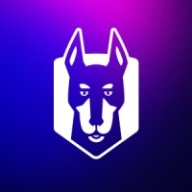

Tenable Nessus and Snyk are leaders in vulnerability management, each excelling in unique areas. Tenable Nessus is standout for its comprehensive vulnerability assessment, while Snyk shines in developer-centric software composition analysis.
Features: Tenable Nessus offers robust vulnerability assessment with predictive prioritization and a vast vulnerability database, enabling efficient scanning across various platforms. It provides comprehensive scanning capabilities with helpful remediation insights. Snyk focuses on developer-friendly integration and software composition analysis, facilitating easy identification and fixing of vulnerabilities. Its accurate vulnerability database aids in prioritization and offers extensive integration capabilities.
Room for Improvement: Tenable Nessus could enhance its usability with better reporting features, improved integration for cloud environments, and a more intuitive interface. Cost-effectiveness for smaller businesses is also a concern. Snyk can expand its language support and improve licensing compliance features. Users suggest better notification filtering and deeper integration with development tools.
Ease of Deployment and Customer Service: Tenable Nessus is adaptable, with a strong presence in on-premises and expanding cloud capabilities. While users find its support reliable, response times vary. Snyk offers seamless cloud-based integration into developer environments, with efficient and responsive technical support.
Pricing and ROI: Tenable Nessus is affordable for small to medium enterprises, though some find its pricing model challenging. It offers good ROI due to its comprehensive capabilities. Snyk, while pricier, provides good value through its extensive features, especially in developer environments, with its pricing often negotiable.
I can see that Snyk saves the costs of hiring security developers for vulnerability scanning and security checks, as that responsibility is now managed by Snyk.
Our long-standing association has ensured smooth communication, resulting in favorable support experiences and satisfactory issue resolution.
Their response time aligns with their SLA commitments.
We could understand the implementation of the product and other features without the need for human interaction.
We received support within one to three hours.
Whenever any issue arises, we contact the support, and they are always there for us.
The technical support is good yet could improve in terms of response time.
Snyk allows for scaling across large organizations, accommodating tens of thousands of applications and over 60,000 repositories.
Snyk is very scalable and can handle my organization's growth and changing needs.
Whether managing 50 servers today or 500 tomorrow, performance or capacity are not hindered.
Tenable Nessus is definitely scalable, especially for license formats designed for scalability.
We have not encountered any issues with missing network items or errors in API and webhook interactions.
The stability of Tenable Nessus is extraordinary.
It lacks the ability to select branches on its Web UI, forcing users to rely on CLI or CI/CD for that functionality.
The inclusion of AI to remove false positives would be beneficial.
As we are moving toward GenAI, we expect Snyk to leverage AI features to improve code scanning findings.
This is Tenable's property. They want to sell Tenable Security Center, and they closed all the API capability for Tenable Nessus Professional.
The documentation is not well-organized, which can be confusing when searching for solutions or specific information related to Tenable Nessus Professional.
The product's pricing has roughly tripled within the last couple of years, making us reconsider renewing the license for the scanner.
Snyk is recognized as the cheapest option we have evaluated.
After negotiations, we received a special package with a good price point.
Snyk is less expensive.
The pricing for Tenable Nessus has increased significantly, tripling over the last few years.
Tenable Nessus's pricing is adequate if it is fully utilized.
My experience with the pricing, setup cost, and licensing of Tenable Nessus is that the installation is somewhat easier, but preparing the product, such as the SKU and license options, is quite tricky.
Our integration of Snyk into GitHub allows us to automatically scan codebases and identify issues, which has improved efficiency.
Snyk helps detect vulnerabilities before code moves to production, allowing for integration with DevOps and providing a shift-left advantage by identifying and fixing bugs before deployment.
Snyk has positively impacted my organization by improving the security posture across all software repositories, resulting in fewer critical vulnerabilities, more confidence in overall product security, and faster security compliance for project clients.
I mostly use the configuration audit feature for the audit configuration as a scan policy, and I will use it for credential audit, which helps me scan credentials access such as local administrator or root access, performing a deeper and more accurate check of local configuration settings and file systems, making it a highly recommended feature.
The scanning and reporting features are the most valuable aspects of Tenable Nessus.
The most valuable features of Tenable Nessus include its ease of access and quick usability.
| Product | Market Share (%) |
|---|---|
| Tenable Nessus | 5.1% |
| Snyk | 2.3% |
| Other | 92.6% |


| Company Size | Count |
|---|---|
| Small Business | 21 |
| Midsize Enterprise | 9 |
| Large Enterprise | 21 |
| Company Size | Count |
|---|---|
| Small Business | 39 |
| Midsize Enterprise | 19 |
| Large Enterprise | 35 |
Snyk excels in integrating security within the development lifecycle, providing teams with an AI Trust Platform that combines speed with security efficiency, ensuring robust AI application development.
Snyk empowers developers with AI-ready engines offering broad coverage, accuracy, and speed essential for modern development. With AI-powered visibility and security, Snyk allows proactive threat prevention and swift threat remediation. The platform supports shifts toward LLM engineering and AI code analysis, enhancing security and development productivity. Snyk collaborates with GenAI coding assistants for improved productivity and AI application threat management. Platform extensibility supports evolving standards with API access and native integrations, ensuring comprehensive and seamless security embedding in development tools.
What are Snyk's standout features?Industries leverage Snyk for security in CI/CD pipelines by automating checks for dependency vulnerabilities and managing open-source licenses. Its Docker and Kubernetes scanning capabilities enhance container security, supporting a proactive security approach. Integrations with platforms like GitHub and Azure DevOps optimize implementation across diverse software environments.
Tenable Nessus provides an efficient vulnerability management system with swift deployment and comprehensive scanning capabilities, making it an ideal choice for organizations seeking to enhance their security posture through effective threat detection and mitigation strategies.
Renowned for its top-tier vulnerability detection, Tenable Nessus offers a robust platform that integrates effortlessly across systems, enhancing threat management through automation, real-time monitoring, and customizable scanning options. Its broad asset coverage, including network devices and applications, coupled with ease of deployment, positions it as a go-to option for risk assessment and compliance. Organizations value its extensive reporting features and database, although they suggest enhancements in reporting formats and false positive detection. A more intuitive interface, improved cloud support, and competitive pricing models are sought after to cater to evolving enterprise needs.
What are the key features of Tenable Nessus?In industries such as finance, healthcare, and tech, Tenable Nessus is implemented for scanning internal and external networks, identifying risks, and ensuring data protection compliance. Organizations conduct regular scans to detect security vulnerabilities in servers and databases, leveraging its capabilities to strengthen their security frameworks while managing cloud infrastructures and enterprise networks efficiently.
We monitor all Vulnerability Management reviews to prevent fraudulent reviews and keep review quality high. We do not post reviews by company employees or direct competitors. We validate each review for authenticity via cross-reference with LinkedIn, and personal follow-up with the reviewer when necessary.